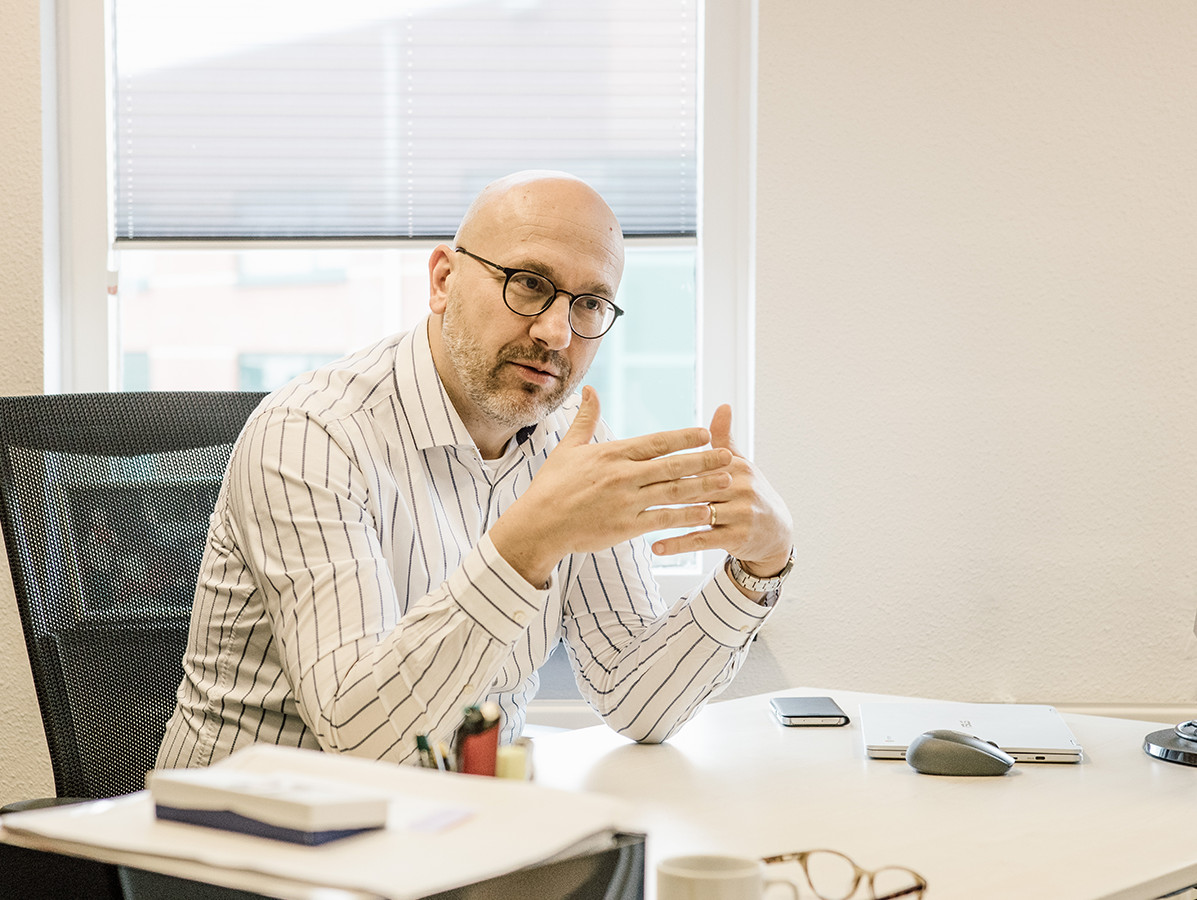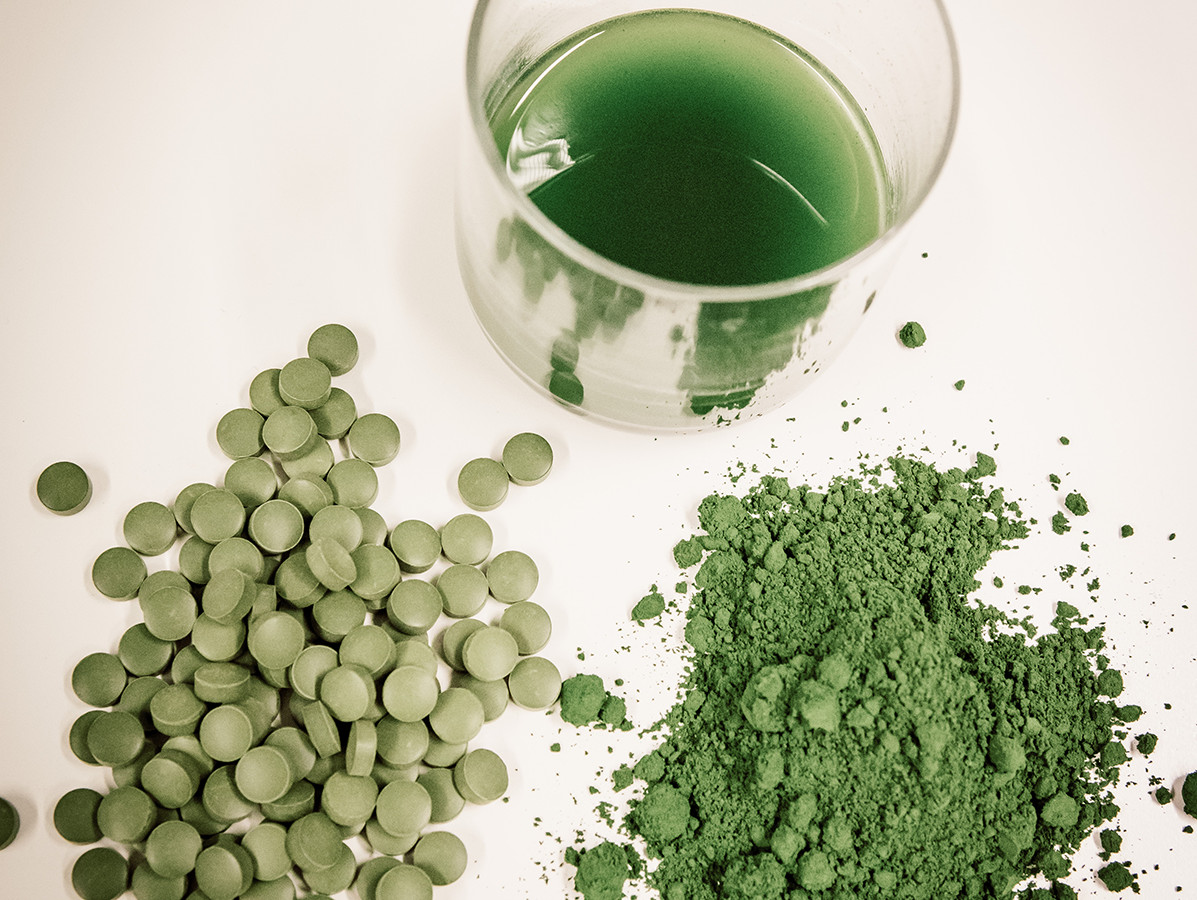
Microalgae are on the right side of the health spectrum. After all: the single-celled plant without roots and leaves has a complete nutrient profile and multiplies every eight hours. Green fast food.
According to business bank Barclays, the worldwide turnover of meat substitutes will rise to 140 billion dollars in ten years time. Marcel Oogink, director/owner of micro-algae producer Duplaco, and his twelve-strong team of specialists will be delighted with that prospect. To get where they are now, a lot was asked of Marcel's perseverance and guts. Giving up was not an option: "I like a challenge," he laughs.
Marcel previously worked for the algae product Ingrepro, which was declared bankrupt in 2013. "One of the causes of the bankruptcy was the far too expensive cultivation process. I am a chemical technologist and went looking for another, cheaper production method. After a lot of research, I found it. Broadly speaking, we grow heterotrophic algae: we produce a lot of algae on a small area, without sunlight. In doing so, we use little water and have low energy costs, which makes the cost price low. Moreover, we are able to produce all year round, guaranteeing stability and a continuous supply to our customers".
Marcel set up his company at exactly the right time. When he started Duplaco, superfoods were on the rise and consumer preferences changed. "2015 was an exciting year; it was our proof of concept period. Two years later there was a pilot plant and last year we decided to expand our production capacity. We have been in Oldenzaal since the beginning of January, with the latest technology and a modern Research & Development centre. Our ambition is to produce 100 times more microalgae within five years: an increase from 10 to 15 tons per year to 1000 to 1500 tons per year".
Microalgae are already widely used as a functional ingredient in a variety of products, such as confectionery and pasta. In addition, the green colour of micro-algae is heat-resistant. "Whether the colour is not a major obstacle? I don't think so. On the contrary; green is associated with responsible and healthy. And a little crazy. With a bit of algae powder through cake batter, for example, cake turns green. Kids love that. Algae can also be combined with various products such as meat, juices and pasta to increase the nutritional value. For example, the Van der Moolen Foodgroup has algae with Chlorella in its assortment. With a protein content of up to approximately 65 percent, algae are also the sustainable alternative to the less sustainable soy and meat products themselves as a foodstuff".

In addition, he sees a future in tailor-made products in which micro-algae are processed. "I imagine different production lines in which we produce micro-algae that are adapted to the wishes of our customers," Marcel explains. "They are green vitamin bombs, almost all vitamins are in them. For a food producer that focuses on sports nutrition with extra nutrients, we can then supply tailor-made algae that meet the desired quantities of certain contents". He does not like the fact that the word algae is not printed with cow letters on the packaging of products containing algae. "No, our algae is usually an addition to the first product, that's fine." The innovative entrepreneur sees all kinds of combinations in front of him. "Take beans. Great product, but you can make them even more nutritious if you mix in a substance of microalgae. You can do that with a lot of conventional vegetables."
As is the case with innovative products, industry was anxious at first. Apparently, that's over, because Marcel receives many requests to cooperate with food-related companies. Nationally and internationally. "Worldwide, companies and scientists are looking for alternative proteins. In 2050 there will be no less than 10 billion mouths to feed. With our microalgae we can make a significant contribution to that. Incidentally, many species of algae have not yet been researched. There is much more potential."
Microalgae are a relatively new product on which many unfounded statements are made. Duplaco's employees talk their way out of these statements. "There's nothing wrong with being positively critical. And we explain it with love." As far as European and Dutch legislation is concerned, Marcel experiences remarkably little or no inconvenience. "What we do encounter, however, is the predicate 'biological'. Our algae are not cultivated in open ponds, one of the conditions to call them organic. I expect that we will eventually come to an agreement with the authorities involved, because our way of growing can be organic, is sustainable and very pure".
Photos: © Negin Zendegani fotografie
Source: © Vakblad Voedingsindustrie 2020